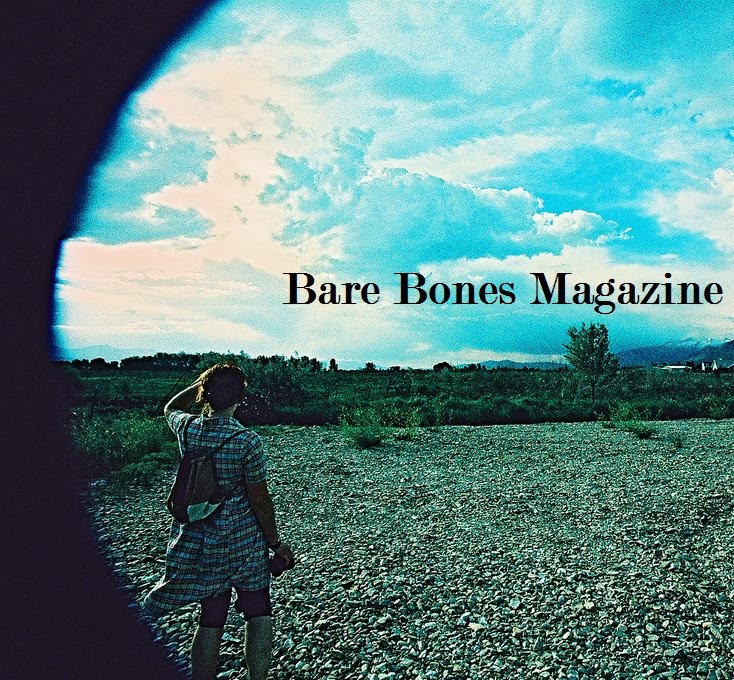Henry from Barry Rowen on Vimeo.
The most pleasing part of Barry Rowen's work is its versatility. In reviewing and providing a quick analysis of Henry, I could discuss its themes (celibacy, alienation in humanity, forbidden love, the struggle of man to know himself, mannequins), I could discuss its medium and its impact on the storytelling (MS Paint is surprisingly expressive in the right hands!), I could discuss the simple story structure itself that somehow sucks the viewer in; I could do anything, really, with this film. Which I think is a mark of Rowen's oeuvre. It says what it wants to say and allows the audience to draw meaning as it sees fit.
And so, as I attempt to delve into Henry, I think it's probably most apt to take the idea of versatility and multiplicity and apply it to another aspect of Rowen's work; that being, mainly, his inward search for meaning.
Henry begins with a Paul Simon song and a stricken priest. The background fades into being, suggesting that at the heart of this story is a man; the rest of his world is incidental. Following the prologue, the second (and only other existent) character of the film is brought in: Barry. Barry is introduced after a reference to a Corey Haim sermon which Father Henry has just delivered.
Let's pause: why Corey Haim? Is it because Haim never married? Is this suggesting that Henry has appropriated Haim as a quasi-Catholic, celibate figure? Whatever the connection, we are never apprised of its true value.
Let's resume: That Barry Rowen has created and projected some sort of affable and well-meaning friend persona onto a paint creation bearing his own name may seem a little strange to those unfamiliar with his work. It is his tradition – nay – his modus operandi to explore these on-screen projections of self in nearly every movie he's made. Barry plays the part of writer, director, lead actor, extras, and narrator in all of his films. Some other people make appearances in his narrative stories: a mannequin, his father, his little sister, a snow man. Yet these other players often get lost in the vast sea of Barry. The most interesting part is that these Barry-filled worlds are not self-aggrandizing in nature. They form a unique sort of self-critique and gentle exploration of the filmmaker's himself. While he's portrayed an array of heroic and grand characters (disillusioned and fed-up husband, dopey investigator, cunning action hero, empowered gay man), in most films he fills the rest of the space around these main characters with clones of himself (literally) that range from cripplingly apathetic to blithely naive. His clone counterparts are often self-defeating and comically inarticulate.
How are we to see these characters? Are they the world Barry projects himself onto? Are other people merely imperfect copies of himself? Or do they serve to represent the overwhelming self-image, the way Barry truly sees himself, and in effect set off the main character as an idealized form of Barry, one which he sees as separate and disconnected from the crowding masses bearing his likeness?
And, with these questions in mind, we approach Henry. Who is Henry in the Barry Rowen universe? And who is "Barry"? Or, is this a different story?
Of all of Rowen's films, this is the most outwardly expressive. Perhaps the MS Paint does something to distance the more shallow aspects of the film world: setting, extras, etc. Henry is remarkably sparse in its population. An almost hilarious amount of the film is simply Henry against a white background. With this simplicity we find ourselves free of the normal, cluttered, Rowen universe. And we don't lose the filmmaker in the shuffle. We know that this is a Barry Rowen production.
And yet, which part of this film is Barry himself? Is he Henry or Barry? Or neither? Is he narrator? The filmmaker? And does all of this analysis sound far too Blade Runner for everyone?
Highlights:
-Impressive use of spatial relation within an archaic and oddly aesthetically pleasing medium.
-Haunting use of a Beach Boys' song. Always a plus.
-So many slow-pans.
-A character pronouncing "pipe" as "peep".
-Bill Cosby posters.
And, of course, the most exciting part of all of this is that soon enough there'll be a Henry II. So soon enough we'll see what happens to the wayward priest and his luxurious mustache.
Barry Rowen is a recent high school grad and can REALLY wear a hat.

2 comments:
master of slow-mo...no one touches this kid...he's the best.
watch Midwest Turn...you'll understand
Gimme some Shakespeare if you dare mention a Henry sequel.
Post a Comment